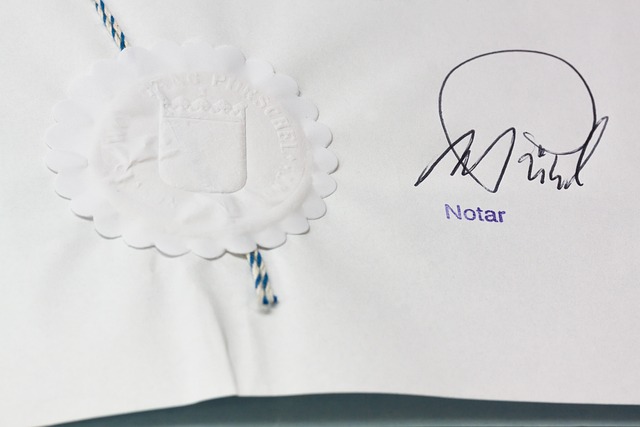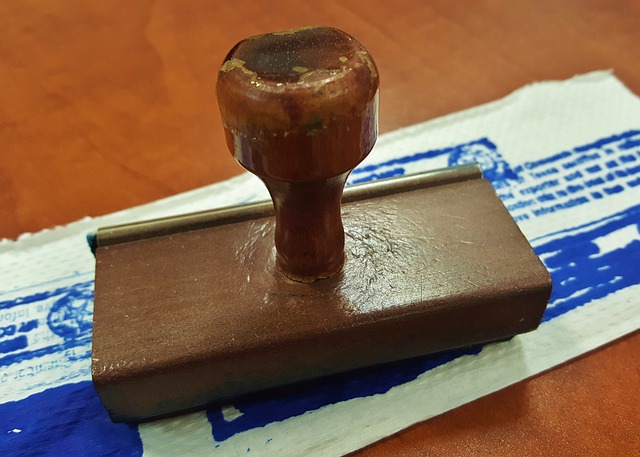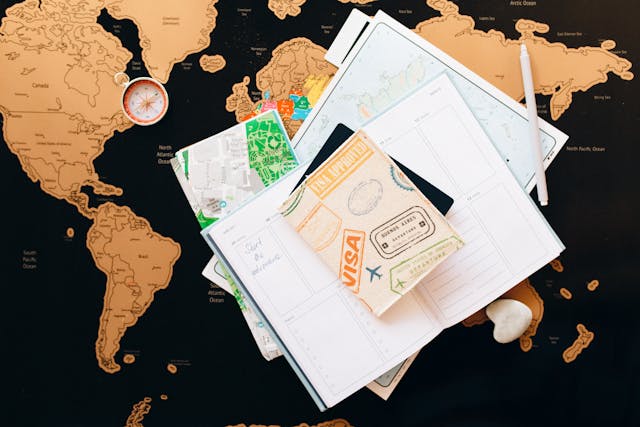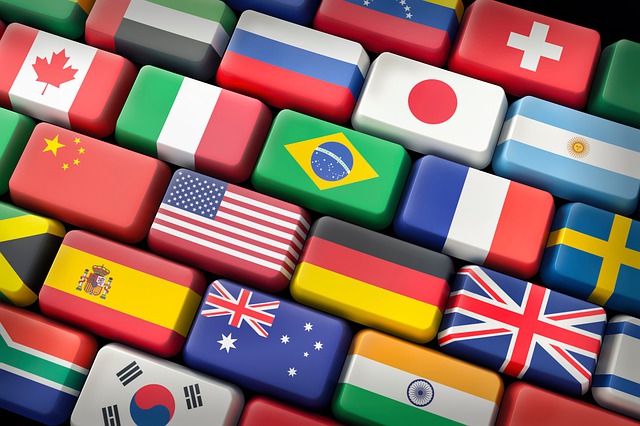Rapid Translate Team
A notary is a government-appointed public official who presides over the signing of legal and official documents, among other things. Notaries play a crucial role in ensuring the validity of legal documents through identity verification. But this doesn’t fully answer the question, “What is a notary?”
There are many more facets to notaries’ responsibilities. But generally, they perform vital roles, so society holds them in high esteem. Many aspire to become notaries, as the service enjoys a high demand.
This post discusses notaries and their activities. Keep reading to learn everything you need to know!

Table of Contents
Notarized Meaning in Simple Terms
To truly understand the job of a notary, one must comprehend the art of notarization. Simply put, “notarized” refers to an official document certification process that a notary public conducts.
Through this certification, a notary attests to the legitimacy of a document, thereby eliminating all fraudulent suspicions. A notarization also counters claims of inaccuracies.
That’s because a notary public must verify documents thoroughly before issuing an official seal.
The notarization process is significant as it facilitates accurate communication, reducing the spread of misinformation. It also legalizes written content within and beyond a nation’s shores.
Notarization introduces a higher level of credibility to translations. That’s because the practice follows formal government requirements, which notaries adhere to. Hence, the art of notarization requires devotion to learning.
In some countries, gaining the power to notarize documents requires a background in law. This requirement often involves years of study, professional courses, and certifications.
But whatever the case, notaries must swear their oath of office before a judge.
After being sworn in, a notary can now be an impartial witness to attest to document originality. So, when someone talks about document notarization, it has passed a notary’s screening.
As a result, it has been awarded with a notarial certificate, making it globally recognizable and acceptable. So you can get your official documents notarized, meaning they’re authentic, reliable and someone witnessed the signing.

What Does a Notary Do?
A notary public’s tasks are essential to ensuring that a document is credible and legally valid. The notary’s seal and stamp verify a document’s authenticity. Therefore, all notarized documents have a higher chance of acceptance when clients submit them to official bodies.
Some find it hard to understand the concept of notarizing documents, especially after translation by a professional. So, to spread enlightenment, we’ll outline the job of a notary.
For those wondering, “What does a notary do?” here’s the answer. Notaries ensure the correctness of translations, verify identities, and prevent fraud. Therefore, their stamp is like a badge of honor.
When you submit your original document and the translated version to the notary, this public official verifies their accuracy. The official then confirms the translator’s identity with an affidavit or other means. The next step involves scrutinizing the client’s government-issued identity card to ensure no foul play.
The client can then sign the document in the notary’s presence, ascertaining the lack of coercion. After all this, the notary can sign the document, stamp it, and seal it officially. The notary public might then issue a certificate acknowledging the document’s authenticity.
When the process is complete, the notary records the transaction for future reference. Thus, notaries’ responsibility revolves around document verification, authenticity confirmation, and record keeping.

What Is a Notarized Translation?
A notarized translation is a converted foreign language document that a notary stamps and seals. However, it’s also possible to notarize the original copy of a document, such as an affidavit or powers of attorney.
Most people are conversant with the latter, hence the numerous inquiries. The most frequently asked question is,” What is a notarized translation?” To grasp the concept of document notarization, you must first understand its phases
The phases of translation and notarization give credibility, recognition, and acceptance to documents in official settings. People mainly translate documents meant for use in other countries to eliminate language constraints.
Hence, foreign language translations are standard for international travelers. Document translation may be necessary for various dealings, including immigration procedures. In this instance, it convinces government officials that your documents are genuine and not a result of forgery.
International students also translate their academic credentials to verify personal documents. Besides personal use, it’s also important in administrative and business transactions.
So, after a successful translation phase, the client can hire a notary public to notarize the document. However, if the client contracts a big agency offering notarization services, it becomes easier to translate and notarize documents.
So, summarily, a notarized translation is a document that an expert translator translates and a notary stamps. One unique thing to note is that a translator can’t do the work of a notary and vice versa. That’s why some agencies provide both services.

What Is a Notary Rush Service?
We can define notary rush services as the opposite of standard notarization, as the official operates hurriedly. A rush notary offers urgent services within a short time frame.
After reading about the functions of a notary, you’ll understand that the job requires a lot of attention to detail.
So, a notary must be smart enough to notice translation errors and fraud in document signing.
A notary must run background checks to confirm the identity of the translator and document signer. The notary must also cross-check the translated copy against the original.
For this to happen, the notary must have a certain level of understanding of both languages.
These are all preliminary steps to issuing a notarial certificate, so that the process might take some time. However, unless in cases of emergency, it’s best to give the notary all the time they ask for.
However, emergencies often occur at unexpected moments, so we cannot overestimate the existence and availability of rush notaries. Rush notaries are responsible for handling jobs with brief deadlines.
Sometimes, they take bookings and appointments on the same day and notarize documents within a few hours. Some are willing to sojourn within their jurisdiction to render their services.
But although they’re meticulous and fast, their notary services attract extra charges. So, before booking an appointment with a rush notary, please prepare financially.

What Is A Notarized Letter?
When a written message carries a notary’s signature, stamp, and seal, it becomes a notarized letter. What circumstances require individuals to notarize letters? While this mainly applies to formal letters, there are several possible instances.
For example, government or judicial agencies may require notarized letters from citizens or residents. Governmental agencies often use notarized letters to process claims and requests.
However, the need for notarized letters exceeds national boundaries. Some international transactions may require an exchange of written communication. So, verifying such top-tier letters containing confidential information is necessary.
When writing a letter before notarization, the author must leave a vacancy for the notary’s seal, stamp, and signature. The notary must confirm the author’s identity before signing as with other documents.
Similarly, after this process, the notary adds his stamp, seal, and signature to the letter. You can now mail the letter to the recipient through the post office. A notarized letter alerts the recipient of the importance of the content. However, it’s unnecessary unless requested.
How To Get Notarized Translation Services
Notarized translation services refer to channels of contacting a notary, meaning several exist. So, if you’re wondering how to find a notary to administer oaths, deter fraud, and for notarial acts and legal advice, you can try any of these.
Independent notaries and signing agents advertise their services and connect with clients through freelance platforms.
To connect with them, you can search for platforms like Upwork. If you’re uncomfortable hiring someone online, you can find a notary nearby. Legal offices and realtor agencies offices often have notaries available for hire.
You can also try contacting a non-commercial library for one. Alternatively, visiting notary directories is another excellent option. Directories list physical and remote notarization providers with several contact options. You can even find mobile notaries who will travel to your location.
While the above options are great, financial limitations may prevent you from working with freelance notaries. Additionally, you may be too busy to visit legal offices and the like.
So, the best route for most people is to connect with a notary through a directory. This method ensures that you’ll get a licensed notary meaning one who has relevant industry certifications and expertise.
Now that you have an answer to the question, “What is a notary?” You must note that you need two officials to get a notarized translation. The first is an expert translator to provide a perfect conversion. You can get this service by contacting internationally recognized agencies.
These agencies have qualified translators with a literal, cultural, and technical understanding of languages and concepts.
Moreover, their rates are affordable, and their renditions have higher chances of acceptance due to their reputation.
Rapid Translate is an agency in the United States that ticks all these boxes and provides timely delivery without rush services. So contact us to get translations that’ll open global doors.





